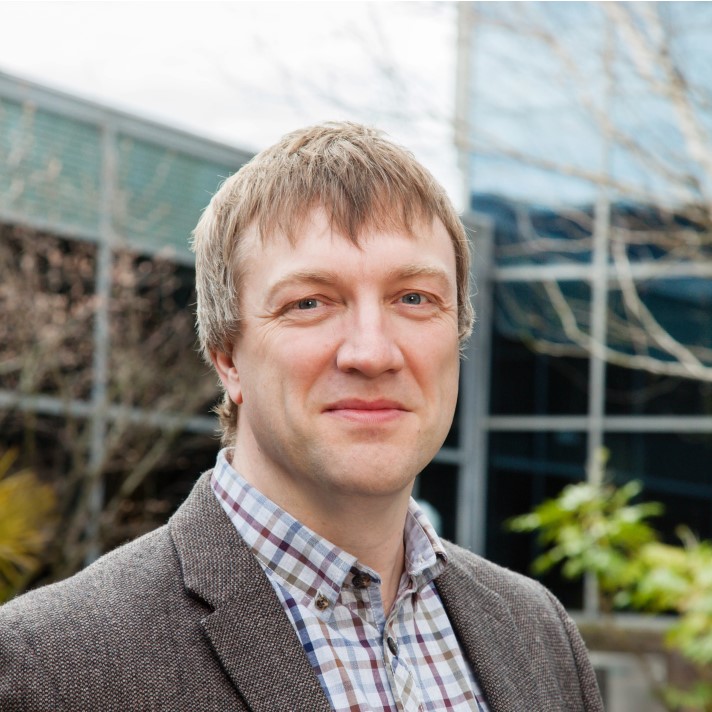Our Company
Day in the life: David Markham, director and CTO at Lorax EPI

Describe a typical day in the Lorax office
I bike into work - usually quite early to give me a chance to ditch the helmet and waterproofs before I sit at my desk! My day starts with reviewing yesterday’s activity, checking overnight logs and assessing today’s work requirements, in preparation for our daily 9am scrum.
Lorax’s software development follows the agile scrum methodology. Bi-weekly sprints provide our plan of work, and our scrum gives the development team a chance to report on any issues, as well as to track progress and prioritise work for the day.
Coffee generally follows – the break providing a chance for any challenges raised in the scrum to churn around in the back of my head, allowing a solution to surface!
After this, my daily tasks can vary quite widely, from functionality and software development to new technologies’ research and development. As we have quite a small team, I even have the odd development task to complete myself.
What did you do before you worked in environmental compliance?
From an early age, I wanted to be a computer programmer. After achieving an honours degree from Bristol University in Computer Systems Engineering, I took a year out to save up some cash to go travelling around Thailand before jumping into my first job.
I started out working on executive management systems, which introduced me to the concept of large datasets and data manipulation. I’ve always been a quick learner and found the methods in which databases were developing fascinating. It wasn’t long before I could see how processes could be improved. I was challenged to prove it, and, after successfully doing so, my progression from junior programmer through to development director was accelerated.
I moved into environmental compliance when tasked with the responsibility for the design and development of a desktop-based system geared around UK reporting.
Tell us more about your role at Lorax EPI
I’m director and CTO. I’m responsible for the development of our cloud-based environmental compliance solution, which we’ve built from the ground up to fully utilise the rapid advances in cloud computing and the latest technologies in .NET and web development.
What’s your favourite part of your role?
Working with new technologies. It’s always been my belief that Lorax should be a cutting-edge innovator in the compliance software marketplace. I like nothing better than understanding the advances in cloud computing, development trends, frameworks and new methods of software development.
Trend predictions in software development for the next decade?
Cloud-based development will continue to grow and change at a rapid rate. The need for servers will disappear as service-based applications become the norm.
The way we interact with business software will change. I don’t think it will be long before we begin to see speech recognition interfaces appearing in the workplace through integration in business applications. With the release of APIs (application programming interfaces) from Amazon and Google to support Alexa and Google Home, it won’t be long before developers start taking this functionality from novelty skills through to practical business applications. The prospect of talking to your laptop is another challenge entirely!
What’s been the biggest professional change you’ve witnessed since you started working at Lorax?
Part of my responsibility as CTO was the design of our IT infrastructure. Going both paperless and fully cloud-based from the start has allowed Lorax to move with the changes to IT as they occur, rather than having to perform singular large incremental upgrades.
I would say the biggest change I have witnessed is the shift to continuous integration into every aspect of IT. Systems did not upgrade very often; once a year at most. Now, every workplace system enhances several times a year and, in some cases, monthly.
Interests outside of work?
In my spare time, I volunteer as a Scout Leader at my local Scout Group. I look after the Scouts section, which covers ages from 10 until 14. The age range is good fun and we are quite an actively outdoor group, which gets me well away from the screen!
The kinds of things we get up to include lighting fires, cooking on open fires, knife work, pioneering, sailing and camping (not always in tents as I’m a big fan of hammocking, even in the UK’s climate!). I’ve even had the chance to bring these scouting skills into the workplace by running an outdoor activity day as a bit of a company introduction and team-building for our new staff last year. Some of our braver members joined me in sleeping overnight in hammocks!
What do you think a typical day will look like at Lorax in 2030?
Lorax will be much larger in 2030! Each department will have much more autonomy. I imagine each department will get together first thing to plan and review the day, while stakeholders meet regularly to implement the vision and direction of the directors.
For development, I think agile scrum will stand the test of time, so our daily scrums will still be in place. The team will have grown though, and development staff will be more globally-based, so I can see the scrum being online, rather than gathering round a desk as it’s done now!
Development itself will be more modular, with new functions dropped in, replaced or enhanced, rather than written from scratch. The application itself will be even more distributed as a result, leveraging processing power on a much wider global footprint.
Our directors will be spending much more time on the strategy of the company, looking for exciting new projects to work on, areas of sustainability to champion, and new ways to help our clients to reduce their environmental impact.
To find out more about Lorax EPI, its software and its team, please visit: www.loraxcompliance.com.


